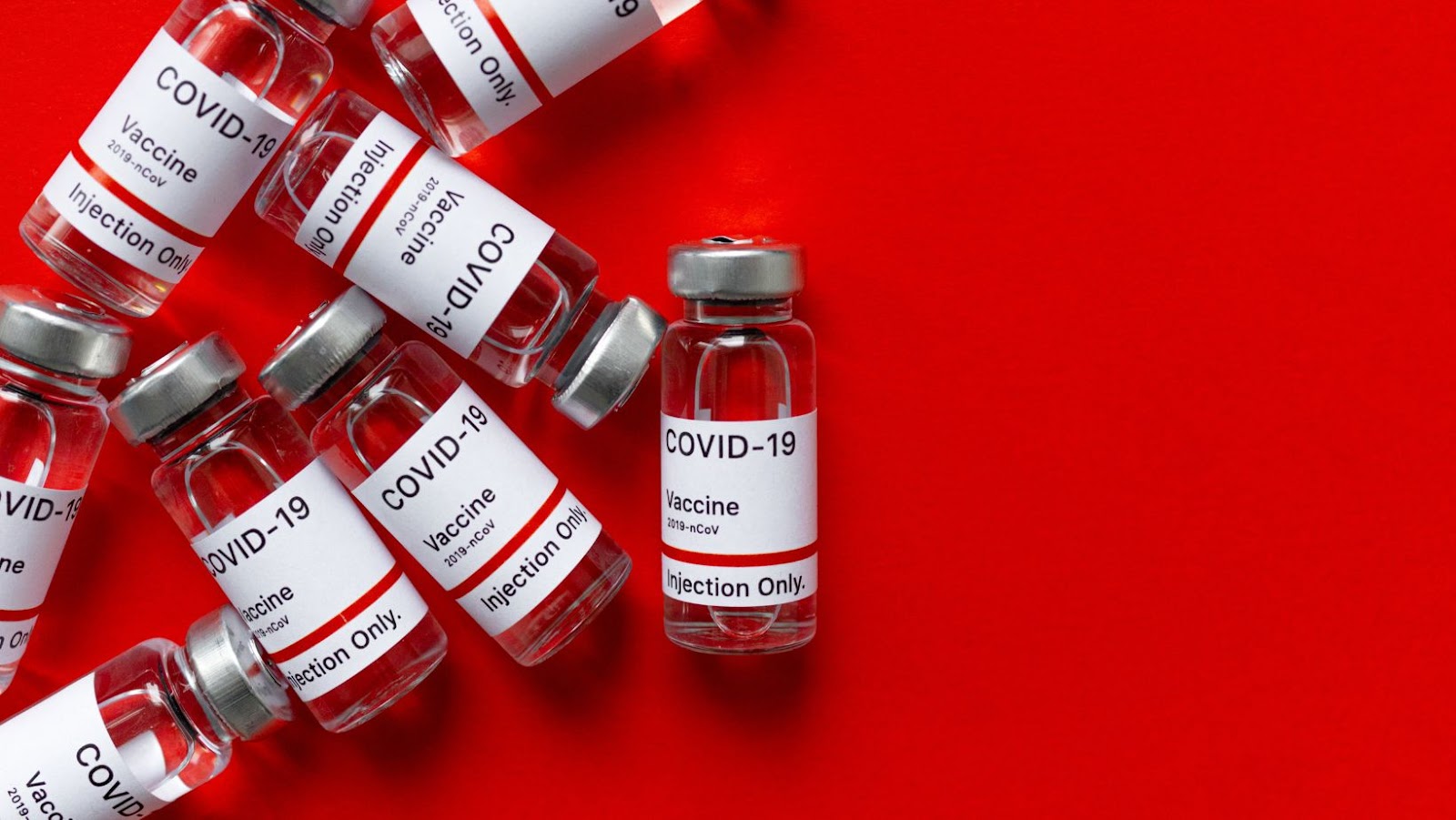As the COVID-19 pandemic has rapidly spread around the globe, vaccine diplomacy has become an increasingly important tool for nations worldwide. China and Russia in particular have utilised their vaccine technology and sources to gain political favour and spread goodwill during this pandemic.
This article will compare and contrast the unique approaches and capacities of China and Russia’s vaccine diplomacy about the Covid-19 pandemic.
Overview of Covid-19 Vaccine Diplomacy
In recent months, countries worldwide have been caught up in a race to secure and distribute vaccines against Covid-19. Nations with superior technical and manufacturing capabilities seek to maximise their profits while emerging countries with the means to do so altruistically offer free doses or strategic access to establish new networks of influence. As a result, Covid-19 vaccine diplomacy has become a major geopolitical tool deployed by governments as they strive for position within an ever-shifting global landscape.
China and Russia have employed vaccination as a diplomatic lever since the start of the pandemic, taking advantage of what analysts call “vaccine geopolitics”, and providing valuable insight into political trends unfolding in both nations. We can better understand complex state behaviour and identify emerging trends in global health policy dialogue by assessing how China and Russia’s vaccine diplomacy has contributed to their respective political agendas.
China, Russia and Covid-19: Vaccine Diplomacy at Different Capacity
With the Covid-19 pandemic worldwide, countries have been competing to secure vaccines and medication for their citizens. However, two major superpowers, China and Russia have been standing out with their version of vaccine diplomacy.
China has been heavily promoting their Covid-19 vaccine, Sinovac and Sputnik V, to gain an edge in the vaccine race. This article will explore China and Russia’s vaccine diplomacy and how they differ.
China’s Vaccine Diplomacy Strategies
China has become an increasingly important and influential global player in the fight against the COVID-19 pandemic, utilising its vaccine diplomacy strategy to expand its global and regional influence. China has expended major efforts to share its vaccines with many countries, particularly those in Southeast Asia, Africa, and Latin America. It is estimated that at least 61 out of 172 countries have either received or signed export agreements for Chinese-produced vaccines. China’s vaccine diplomacy efforts can be seen as a strategic tool designed to expand their political influence worldwide by bolstering bilateral ties with partner states.

At the same time that China is seeking to bolster diplomatic ties through distributing vaccines overseas, they are also engaging in several strategies intended to cultivate relationships with countries in other ways, such as providing medical training and consultation services from Chinese experts, awarding scholarships for pursuing higher education in China, extending 0% interest loans for developing infrastructure projects with their “belt and road” initiative, etc.
In comparison to Russia’s rather transactional approach towards vaccine diplomacy (Russia’s “Sputnik V” brand) where many countries sign contracts under favourable terms before even receiving the full supply of vaccines; Chinese companies have offered more beneficial terms with priority given on humanitarian assistance such as lower prices being charged or free distribution being provided before commercial activities begin across different continents such as Africa or South America. This strategy allows them to lock-in long term investments into partner nations while making up any profit losses through increased sales volumes through higher demand due to gaining public trust on the reliability of their products. Furthermore compared to India (another assertive regional power) which negotiated favourable discounts when supplying their local-made AstraZeneca vaccine doses globally; Chinese companies have invested heavily into ambitious research projects into producing notably effective deliverable mRNA candidates while also manufacturing traditional jabbed injections targeting various genetic mutates throughout different portions of the world ranging from Latin America across Eurasia/Africa which allowed them form a significant strategic lead over their competitors particularly when it came down product delivery under short notice periods due to established domestic manufacturing chains which took years of effort and money invested beforehand.
China’s Vaccine Diplomacy Impact
China has become a major player in global vaccine development through its “vaccine diplomacy” efforts. Through sending and donating millions of doses of Chinese manufactured Covid-19 vaccines, China has developed strong relations with small and large countries. This effort is seen increasingly as a power move by the Chinese government to increase its global influence and counter what it believes are confrontational foreign policies by the United States and other Western nations.

With this in mind, there is evidence that China’s “vaccine diplomacy” efforts have been successful, particularly in smaller countries where resources for vaccinating people against Covid-19 is scarcer. In addition, numerous developing countries have received donations and money from the Chinese government for vaccine development and distribution programs, raising speculation as to whether China will receive payoffs in diplomatic support from these nations through debt payment or investment initiatives in exchange for their cooperation.
Compared to Russian vaccine diplomacy, there is evidence that its efforts do not seem as successful. For example, while Russia may have exported its Sputnik V vaccines to numerous countries at a relatively low cost compared to Western players such as Pfizer, AstraZeneca or Moderna, there have been reports of manufacturers overcharging purchasers while supplying defective products such as vials of expired or contaminated doses. Additionally, some governments may be concerned about receiving support from an authoritarian country linked with election interference while also facing criticism on human rights grounds with concerns over diminishing freedoms of speech and expression regarding recent political events in Russia.
Russia’s Vaccine Diplomacy
Russia has become an increasingly dominant player in the global vaccine outreach, with its Covid-19 vaccine, Sputnik V, being the first to receive approval from the World Health Organisation.
Russia’s vaccine diplomacy is being compared to initiatives from China, with both countries utilising the pandemic to advance their political and economic interests in different parts of the world. This article will discuss the differences between the two countries’ vaccine diplomacy efforts.
Russia’s Vaccine Diplomacy Strategies
Russia has been one of the most successful countries in its vaccine diplomacy strategy. It is increasingly becoming a player in the global race to vaccinate populations against the COVID-19 virus. Besides seeking to protect its citizens, Russia has been leveraging its vaccines as a tool for soft power, as it provides them in countries where it seeks to have allies and influence.

Russia’s ‘Sputnik V’ vaccine has been shipped to countries such as Brazil, Saudi Arabia and India, allowing it access to their markets and giving them a strategic foothold in important regions. In addition, Sputnik V is known for being cheaper than other vaccines and more easily transported due to not requiring an ultra-cold storage chain like other brands do. Vaccines also help Russia build trust among its partners and signal that Moscow is willing to cooperate internationally on public health despite political and security issues.
Indeed, it was only with Russian envoy Ruslan Tikhaev’s visit that Damascus received 1 million doses of Sputnik V from Moscow’s ally Belarus. Moreover, recent news reveals Venezuela will soon receive some 5 million doses from Russia starting next month for distribution amongst citizens living inside the country or abroad covering about 20 percent of Venezuelans – no doubt another major leap forward for Russian vaccine diplomacy efforts.
Russia’s success can be contrasted with China’s approach based on isolated bilateral agreements reliant upon financial investment but not providing free vaccination services – instead Chinese producers offer technology transfers to further enable local production capabilities (although this could vary from country to country). However, it remains unclear how effective China’s strategy will be compared with Russia’s direct approach which would seem more attractive regarding vaccine access alone.
Russia’s Vaccine Diplomacy Impact
Since the onset of the global pandemic, Russia and China have made great strides to demonstrate their commitment to global health by launching a series of initiatives dubbed “vaccine diplomacy”. This form of diplomacy is using vaccines, vaccine production technologies and other healthcare assistance as diplomatic tools to foster relationships and garner goodwill between countries.
Russia’s vaccination campaign has successfully built international goodwill through its Sputnik V vaccine, developed within Russia before gaining approval from its Ministry of Health in August 2020. To date, Russia has exported or delivered over 30 million doses worldwide in more than 40 countries on four continents and with further agreements signed for deliveries until 2023 for recipient countries across Europe and Latin America. By contrast, China has primarily utilised bilateral trade deals as the core focus for its overseas distribution agreements.
The impact of Russia’s strategies can be seen through its expanded influence on numerous international platforms – from strengthening ties with African nations such as Zimbabwe where President Emmerson Mnangagwa demonstrated his support by taking the first documented public dose, to becoming a credible vaccine supplier within traditional EU allies notably in Hungary which received domestically produced doses, rather than Chinese imports that are more closely monitored and subject to export taxes. Additionally, due to a higher efficiency rate among doses administered and developed solely at home — yielding greater control over resources while promoting national image — they have also been able to supply vaccines outside approved markets such as North Korea despite limited sanctions against Pyongyang.
Comparison
Since the onset of the COVID-19 pandemic, China and Russia have taken different approaches to vaccine diplomacy. While China focuses on providing its vaccines to countries in need, Russia has taken a more pragmatic stance, offering assistance and support to many countries through vaccine supplies.
This article will compare the two countries’ vaccine diplomacy approaches and their respective capacities to carry out the tasks.
Comparison of Vaccine Diplomacy Strategies
China and Russia have employed different strategies to foster greater influence and perception of their vaccine diplomacy efforts worldwide.
Both are actively supplying and negotiating for vaccine supplies globally, with Russia leading in rolling out its mass vaccination programmes. At the same time, China runs large-scale donations of its Sinopharm vaccine to recipients across the developing world. However, beyond mass supply deals and negotiated contracts, the two countries have employed markedly divergent diplomatic strategies in delivering their vaccines to other nations.
Russia’s approach is more aggressive, emphasising geopolitical ties with allies and non-allied countries. For example, it has used diplomatic ties with India and a nationalist rhetoric to convince Sri Lanka to purchase its Sputnik V vaccine instead of those from other sources. In contrast, China has tended to rely on multilateral organisations such as COVAX as part of a “soft power” strategy designed to ingratiate itself with recipient countries reliant on Chinese imports for their own healthcare needs. Its emphasis has been on provision of supplies rather than direct control or ownership; preferring donations or providing concession arrangements where possible.
Overall, when comparing China and Russia’s respective approaches so far, it is clear that differences exist in strategy and execution. Both have gained considerable successes but each country is pursuing a distinct path in ultimately trying to accomplish similar goals: expanding influence abroad through the delivery of vaccines worldwide.
Comparison of Vaccine Diplomacy Impact
As the world is in the midst of a global health crisis with over 3.72 million deaths and counting, vaccine diplomacy has played an unprecedented role in international affairs and foreign policy. Vaccine diplomacy refers to how countries distribute, develop and provide access to vaccines as part of their mission objectives and geopolitical initiatives. In recent news, China and Russia have taken on the leading roles in vaccine diplomacy.
Comparing China’s and Russia’s vaccine diplomacy efforts reveals several key differences between the two countries. Firstly, China has adopted a more proactive approach in which it provides free or low-cost vaccines worldwide, deepening its relations with developing countries where COVID-19 has had a devastating impact. As a result, according to Chinese Foreign Ministry spokesperson Hua Chunying, Chinese vaccines have been exported to more than 40 countries, including African countries facing vaccine shortages due to insufficient funding and infrastructure barriers. On the other hand, Russia waged its vaccine diplomacy around multilateral engagements with global organisations such as G20 rather than direct bilateral relationships with recipient countries compared to China. However, despite this difference in diplomatic styles employed by both states, their overarching goal of promoting national interests related to science engagement remains inconsistent.
However, despite these differences between both parties’ approaches towards vaccine diplomacy efforts, one thing remains certain. Both parties remained unwavering in their push for global immunisation campaigns through international agreements designed around cooperation and goodwill initiatives. Ultimately advancing foreign policy agendas within economic networks on a global scale that dispenses mutual benefit not only promotes favourable relationships abroad but adds diplomatic credibility to both nations within healthcare fields worldwide – all while overcoming geopolitical obstacles which promote healthy competition amongst other rival states seeking regional power balance through diplomatic means throughout today‘s ever-evolving world order status quo.
